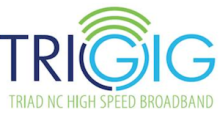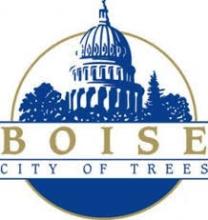NC Partners: Fiber Will Give Region A Green Light to A Gig
The Tri-Gig High Speed Broadband Initiative, an effort by communities and universities within Greensboro's Piedmont Triad Region, recently announced plans to release an RFP in an effort to improve regional connectivity.
According to the News & Record, the partners are searching for a partner equipped to develop, operate, and provide Internet services over a new open access network. Hemant Desai, Chief Information Officer for Guilford County, hopes the project will spur innovative ideas from the private sector:
The goal of this project is not to restrict but enhance the deployment. Let them come back to us and say, ‘Here’s what we’ll provide you if you provide this to us.’
The project is a joint effort of the City of Greensboro, Guilford County, the City of High Point, the City of Burlington, North Carolina A&T State University, the University of North Carolina-Greensboro, and the Piedmont Triad Regional Council. Collectively, these entities have a population of nearly 700,000 people.
A Strong Foundation
A network of this scope and scale was not envisioned by Greensboro officials when they spent $24 million to build a fiber-based communication system several years ago. At that time, the goal was to update the communication infrastructure for the city’s traffic signal equipment. In 2008 Greensboro began building its award-winning Intelligent Traffic System (ITS) comprised of 120 miles of fiber optic cables and other essential modern traffic technologies. Guilford County, High Point, Burlington, UNC-Greensboro, and North Carolina A&T all have similar traffic systems.
An ITS provides significant public safety benefits over traditional traffic communication systems. For example, the system in Greensboro controls over 450 intersections and enables sensors to turn traffic lights green for fast-moving emergency vehicles, making the roads safer for everyone while facilitating faster attention to crisis situations.
Using Existing Dark Fiber



